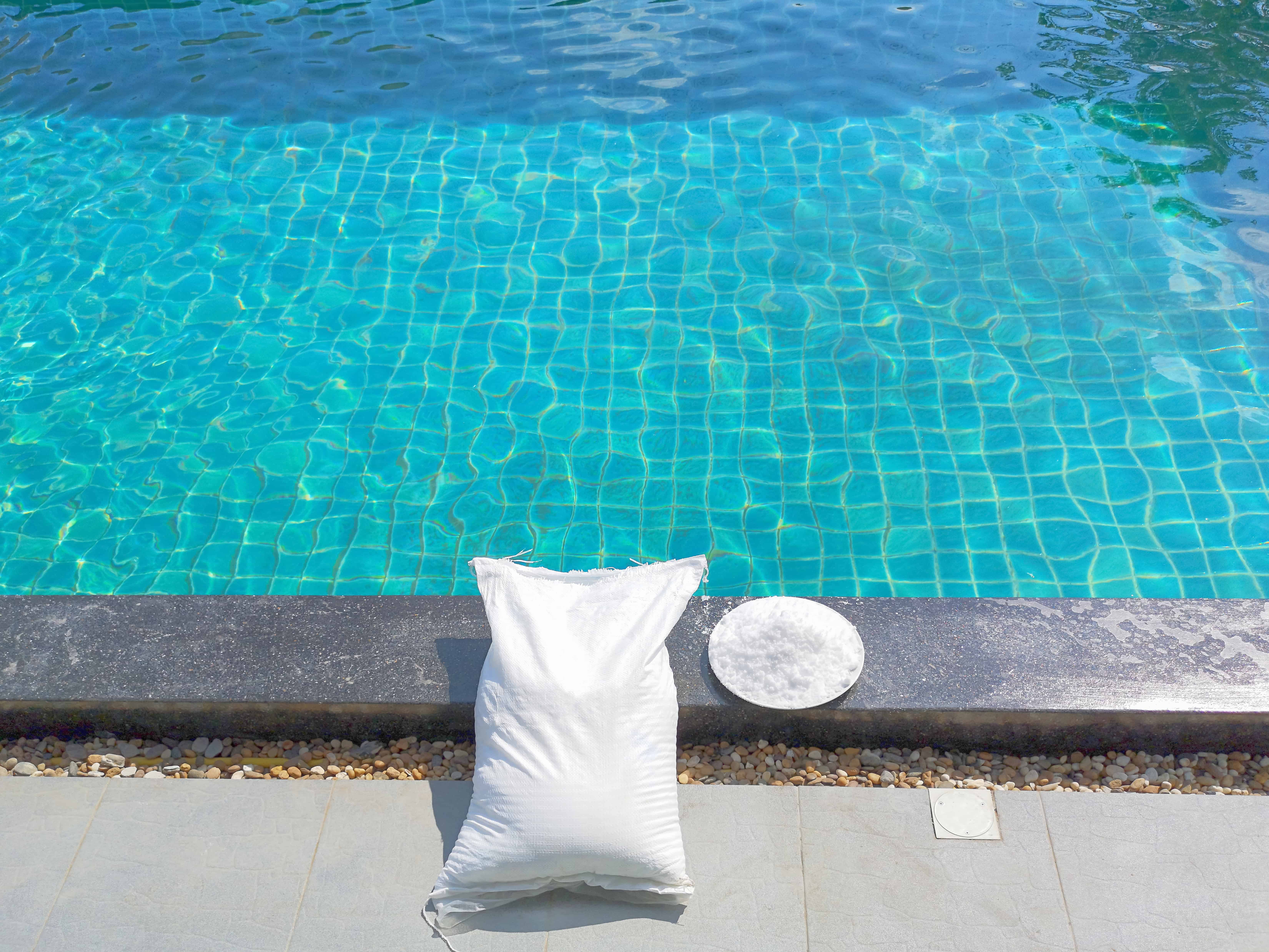One question regarding salt water pools relates to whether the salt in the water is dangerous to a person’s health and if it can be absorbed into the skin of swimmers.
Absorption of salt through the skin is negligible at best and you’re more likely to lose water from dehydration while swimming. A salt water pool has low salt content of between 2,700 and 3,400 parts per million (ppm) which is significantly less than the salt content in the ocean which is about 35,000 ppm.
If swimming in the ocean isn’t considered dangerous from a salt consumption perspective, how can swimming in a salt water pool be considered as such, given that the pool has less than 10% the salt content? In fact, other bodies of water that humans swim in have even more salt content than oceans.
Salt water pools are purported to offer health benefits over regularly chlorinated pools but some are overblown. Sure, you don’t get the chlorine smell and irritated red eyes in a salt water pool. Your hair and skin may also benefit but that’s about it really.
In actuality, the benefits you’ll get from a salt water pool are more from the reduced maintenance over regularly chlorinated pools, as we’ll see below.
Health advantages of a salt water pool
The health advantages of a salt water pool are largely limited to water that is easier on the skin and eyes as the chlorine produced is slightly different from the chemical variety. You can open your eyes under water in a salt water pool and generally won’t have issues such as red, irritated eyes often associated with chlorine exposure. The chlorine produced by a salt chlorinator is a milder form than the chemical versions, that’s why.
The salt content of the pool is what is required to produce chlorine to sanitize the water. That’s it! It’s not really based on any health benefit so any such benefit is minor in my experience.
Salt water pools generally maintain their water chemistry with less work required than regularly chlorinated pools. That’s the actual benefit that you the pool owner will be more likely to notice.
Salt water pools have chlorine just like other pools do, but the chlorine is produced by the salt cell and chlorinator rather than being manually added. Salt water pools also require other chemicals such as cyanuric acid and might require algaecide, muriatic acid, filter cleaner and more depending on what the water needs.
One of the main “problems” with salt water pools is the misinformation that is found regarding them especially from people that never owned one let alone even swam in one. Let’s clear up some of those issues below.
Does a salt water pool have other benefits?
There are a few myths about salt water pools that are worth quickly clearing up. Here are some statements that are true regarding salt water pools:
- Salt water pools are chlorine pools. They have chlorine just like regular pools but the salt water chlorinator manufactures chlorine from liquid salt rather than adding chemical chlorine manually.
- Salt water pools require maintenance. You still need to vacuum and skim a salt water pool just like other pools. They do tend to require less maintenance than regular chlorine pools but you still need to do some work. Water chemistry is generally easier to maintain with a salt water pool but the pH can drift higher so keep that in mind.
- The salt level is relatively low. You keep the salt level in the pool between 2700 ppm – 3400 ppm. Parts per million (ppm) is the measurement unit that is used and to give you a comparison, the salt content in the ocean is about 35,000 ppm and the Dead Sea is about 10x that. So a salt water pool has a relatively low salt content. Your body won’t absorb any large amount of salt that your health will suffer from.
- You can’t taste or smell the salt. Again, the salt content of your salt water pool is relatively low. You can’t taste or smell it as you can when you’re in the ocean. Humans can taste salt in water at around 3500 ppm and higher so a typical salt water pool’s salt content is too low for your palate to notice. And you don’t want to drink pool water unless by accident anyways, right?
- Salt water pools contain chemicals. In fact they contain the same chemicals as regularly chlorinated pools. They also contain salt of course, which other pools don’t. Plus you need to add cyanuric acid – also called Cya or stabilizer – to protect the chlorine produced by your chlorinator from the sun’s damaging rays. You may also require other chemicals such as filter cleaner and algaecide among others, from time to time.
Summary
Salt water pools have a relatively low salt content that should be kept between 2700 ppm and 3400 ppm to enable the chlorinator to produce chlorine to sanitize the water. Ocean water has salt content of around 35,000 ppm which is clearly much higher.
There doesn’t appear to be any evidence that swimming in a salt water pool will raise your body’s salt content to any degree. If this was a concern, presumably swimming in the ocean and other famous bodies of water like the Dead Sea would be considered a problem given the much higher salt water content.
You should be more concerned with not accidentally swallowing any pool water given the other chemicals and contaminants in it. Even still, accidentally swallowing a small amount of pool water is more on the gross side than being dangerous to your health.
Salt water pools do lose salt which is why salt does need to be added over time. But salt is lost not due to humans consuming it and certainly not from evaporation but due to other reasons you need to be aware of.

